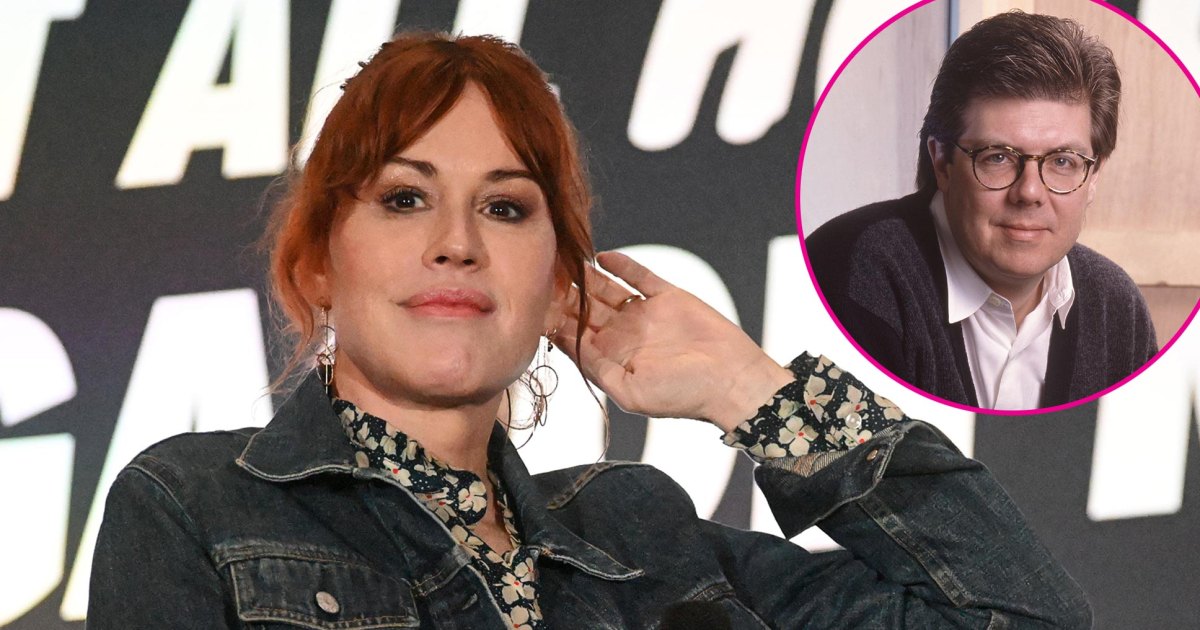Unveiling the Peculiar Legacy: Molly Ringwald Reflects on Her Role as John Hughes’ Muse
In an exclusive interview, Molly Ringwald opens up about her unique experience as the teenage muse of iconic filmmaker John Hughes. The collaboration between Hughes and Ringwald has become a defining element of 1980s cinema, giving rise to a series of unforgettable films that resonate with generations. But what does it mean to be a muse? What were the dynamics of their collaboration? In this article, we delve into Ringwald’s reflections, exploring how her role as Hughes’ muse not only shaped her career but also influenced the broader landscape of teen films.
The Genesis of a Collaboration
Molly Ringwald first crossed paths with John Hughes in the early 1980s. Hughes, known for his keen understanding of adolescent angst and humor, found in Ringwald the perfect embodiment of the teenage experience. She starred in three of his most iconic films: Sixteen Candles, The Breakfast Club, and Pretty in Pink. Each of these films not only showcased her acting talent but also allowed her to explore complex characters that resonated with young audiences.
Reflecting on their initial collaboration, Ringwald notes, “I think John saw something in me that I didn’t even see in myself at the time. He had this incredible ability to write characters that felt real and relatable.” This sentiment highlights the peculiar dynamic of their relationship—an interplay of creative vision and personal growth.
The Dynamics of Being a Muse
Being a muse is often romanticized in popular culture, yet it carries its own set of complexities. For Ringwald, the relationship with Hughes was not just a professional one; it was deeply personal. “John was not just a director; he was a friend and a mentor,” she recalls. “He understood the struggles of being a teenager, and he infused that understanding into every script.”
This connection helped Ringwald convey genuine emotions on screen, allowing her to inhabit characters that were both authentic and iconic. She describes the experience as almost therapeutic: “Playing these roles helped me navigate my own teenage years. I was able to express feelings and experiences that many of us were going through but didn’t know how to articulate.”
The Cultural Impact of Their Films
The films that Ringwald made with Hughes didn’t just entertain; they shaped the very fabric of teen culture in the 1980s. The Breakfast Club, for instance, is often regarded as a seminal work in the genre, bringing together a diverse group of high school students and exploring issues of identity, social class, and belonging.
- Sixteen Candles: This film addressed the often overlooked aspects of being a teenager, such as feeling invisible and the pressure of societal expectations.
- The Breakfast Club: This classic highlighted the importance of understanding and empathy among different social groups.
- Pretty in Pink: This film tackled themes of love, class disparity, and self-acceptance, resonating deeply with audiences.
Ringwald emphasizes, “We were tapping into something that was very real for teenagers. The struggles we portrayed on screen mirrored what many were feeling in their lives.” This authenticity is part of what makes these films timeless, as they continue to attract new audiences even decades later.
The Evolution of Ringwald’s Career
While Ringwald’s roles in Hughes’ films propelled her to stardom, they also placed her in a box that she sought to escape. “Being labeled as a teen star can be both a blessing and a curse,” she admits. “I was grateful for the opportunities, but I also wanted to grow and explore different types of roles.”
Post-Hughes, Ringwald ventured into various genres, showcasing her versatility as an actress. She appeared in television series such as Riverdale and took on roles in independent films that allowed her to delve into more complex characters. “It was important for me to break away from that initial image and show that I could evolve as an artist,” she explains.
Reflections on Influence and Legacy
Today, Ringwald reflects on the peculiar legacy of her time as Hughes’ muse with a mix of nostalgia and gratitude. “I wouldn’t be where I am today without those experiences. They shaped my career and my identity,” she states. “But I also recognize that I’ve had to forge my own path beyond that.”
This nuanced understanding of her legacy highlights the importance of growth and self-discovery. While she cherishes her time with Hughes, she is equally committed to evolving as an artist and an individual.
The Impact of Nostalgia in Modern Cinema
The influence of Hughes and Ringwald’s films can be seen in contemporary cinema, where themes of teenage angst and identity continue to resonate. Filmmakers often draw inspiration from the iconic style and storytelling techniques of the 1980s, creating films that echo the emotional depth of Hughes’ work.
Ringwald acknowledges this trend, stating, “Nostalgia is a powerful tool in storytelling. It allows us to connect with audiences on an emotional level.” This connection is crucial in today’s fast-paced world, where meaningful storytelling can sometimes be overshadowed by spectacle.
Conclusion: Embracing the Legacy
Molly Ringwald’s reflections on her role as John Hughes’ muse unveil a peculiar legacy that transcends mere celebrity. It’s a story of friendship, mentorship, and the power of storytelling to articulate the complexities of youth. As she embraces her past while continuing to carve out her future, Ringwald stands as a testament to the lasting impact of Hughes’ work—and a reminder of the importance of authenticity in cinema.
Through her journey, she inspires both aspiring actors and filmmakers to seek genuine connections in their creative endeavors, ensuring that the legacy of Hughes and Ringwald will continue to resonate for generations to come.
See more CNET Live

